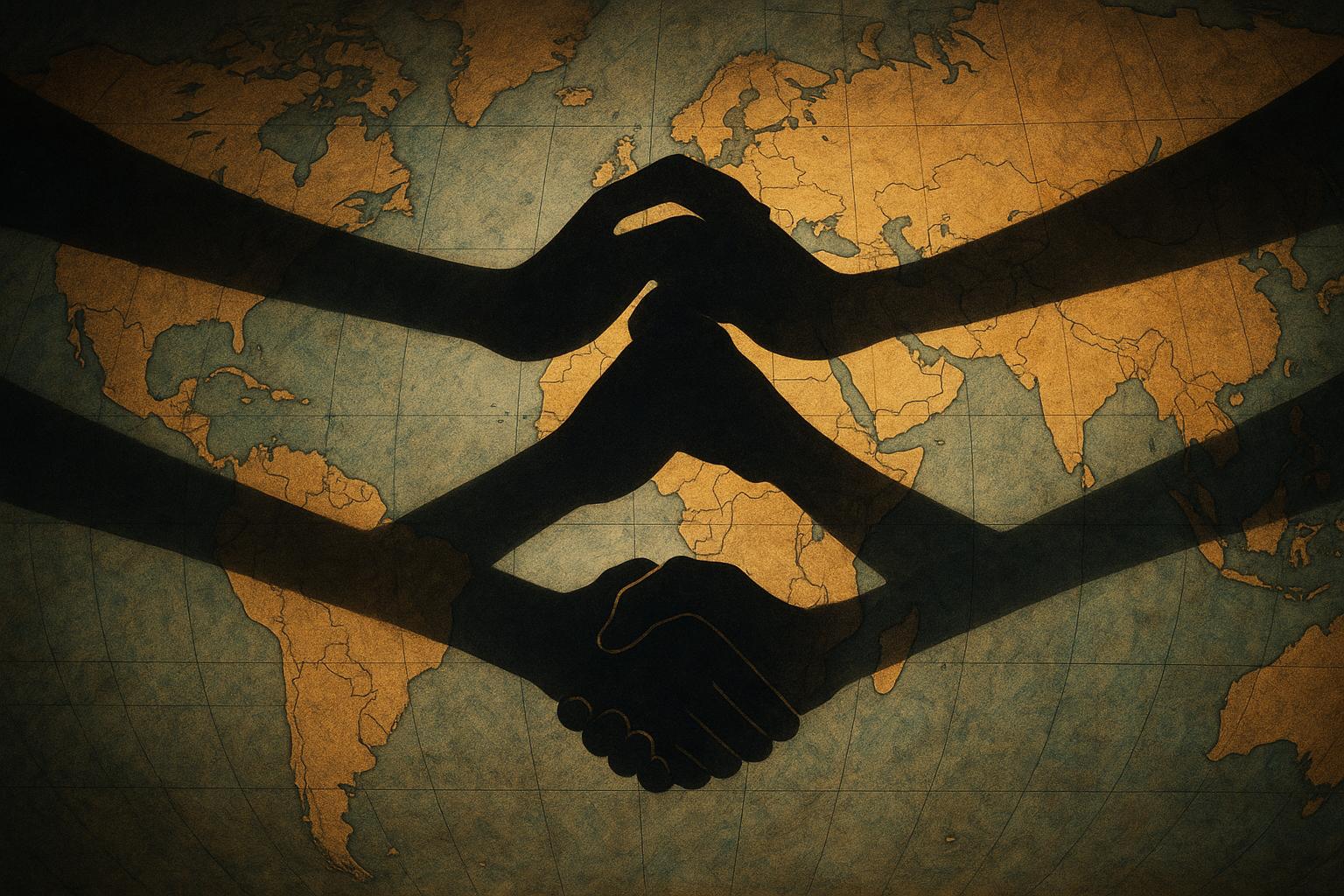Professor Benedict Oramah, departing president of the African Export-Import Bank (Afreximbank), used one of his final major addresses to reinforce a vision central to his decade-long leadership: the unification of Africa and its global diaspora into an integrated economic and cultural force. Speaking at the Future Africa Forum 2025 in New York, under the theme “From Heritage to Prosperity: Leveraging Cultural Roots to Promote Global Africa,” Oramah articulated a philosophy and policy framework that transcends geographic boundaries, urging nearly two billion people of African descent worldwide to embrace a collective identity that drives development and prosperity.
Oramah’s vision challenges the traditional view of Africa solely as a continent of 54 countries. Instead, he presents "Global Africa" as a global civilisation encompassing the African diaspora, including those in the Americas and the Caribbean, connected through shared ancestry and history. His message underscores the importance of transforming ancestral bonds into pragmatic economic relationships by mobilising investment, facilitating remittance-backed financing, fostering skills transfer, and developing cultural industries. He emphasised that the African diaspora, which sends over $100 billion in remittances annually, represents an untapped reservoir of human capital, professional networks, and market opportunities that could substantially accelerate Africa’s development if strategically engaged.
This vision has been translated into concrete initiatives spearheaded by Afreximbank over recent years. Among these, the Global Africa Gateway in New York, launched in September 2024, stands out as both a symbolic and practical hub connecting Africa to its diaspora. The Gateway’s Diaspora Internship Programme has established valuable professional exchanges, embedding young African Americans within leading African enterprises and nurturing cross-continental collaboration beyond conventional business deals. Additionally, the AfriCaribbean Trade and Investment Forum (ACTIF)—launched in 2022—has emerged as a pivotal platform advancing Africa-Caribbean economic integration. The fourth edition of ACTIF, held in July 2025 in Grenada with over 2,100 delegates, including 11 Heads of State from 80 countries, generated more than $300 million in trade and investment agreements spanning infrastructure, tourism, and digital transformation sectors.
Afreximbank’s engagement with Caribbean nations extends beyond forums. Thirteen CARICOM member states have joined the bank, eleven of which have ratified a Partnership Agreement granting Afreximbank a legal mandate in the region. A regional office in Barbados reinforces this commitment, alongside a $3 billion financing pledge aimed at climate adaptation, tourism, energy, sports, SMEs, and infrastructure development projects. The groundbreaking of the $180 million Africa Trade Centre in Barbados in March 2025 marked the bank’s first major infrastructure project outside Africa, symbolising a tangible commitment to fostering deeper trade ties between Africa and the Caribbean.
Despite these gains, Oramah acknowledged the complexities involved in realising Pan-African unity through economic integration. Cultural affinity alone may not guarantee profitable trade or investment relationships, given the distinct identities shaped by centuries of different historical and socio-economic contexts. Furthermore, the significant financial flow represented by remittances is mostly dispersed for immediate consumption rather than investment, underscoring the need for innovative financial instruments and scalable institutional frameworks to convert these funds into development capital effectively.
The challenges of economic integration also extend to infrastructural and regulatory discrepancies that Afreximbank’s initiatives must navigate. Meeting these challenges requires sustained political will, enhanced financial infrastructure, and new trade facilitation mechanisms. Oramah’s successor, Cameroonian George Elombi, emphasised in his remarks at ACTIF2025 that future progress will depend on integrating payment systems, improving cross-border trade logistics, and viewing the Caribbean as a unique opportunity for expansion, reflecting continued commitment from Afreximbank’s leadership.
Oramah’s contribution to African financial architecture has been formally recognised by Nigeria’s President Tinubu with the Grand Commander of the Order of the Niger, signalling his stature and influence in the continent’s development finance sector. The model he has advanced—linking cultural roots to economic prosperity—represents a pragmatic evolution of Pan-African ideals, focusing on institutional and economic mechanisms rather than solely political solidarity.
As the Global Africa framework evolves, its success will hinge on multiple factors: ongoing economic growth and political stability in African nations, diaspora confidence in investment opportunities, and collaboration among public and private stakeholders to overcome inherent structural barriers. For the Caribbean, unique challenges including small market sizes, climate vulnerability, and existing economic ties with other global partners add layers of complexity to this integration effort.
Nevertheless, Afreximbank’s $3 billion commitment to CARICOM and its efforts to develop regional infrastructure and trade platforms represent significant steps towards reimagining the Africa-Caribbean economic corridor. The establishment of a potential Caribbean Eximbank and dedicated climate resilience funds further illustrate the bank’s role as a catalyst for deeper partnership.
Ultimately, Oramah’s address at the Future Africa Forum encapsulates a vision of nearly two billion dispersed Africans functioning as a united economic and cultural entity. This ambition requires more than infrastructure and investment; it demands sustained leadership, innovative financial systems, and resilient political and social ties. Whether the bank’s new leader embraces and expands this agenda remains to be seen, but the foundations laid provide a framework for ongoing progress in Pan-African economic integration beyond geographic borders.
📌 Reference Map:
- Paragraph 1 – [1], [4]
- Paragraph 2 – [1], [7]
- Paragraph 3 – [1], [2], [6]
- Paragraph 4 – [1], [3], [5]
- Paragraph 5 – [1], [3], [4]
- Paragraph 6 – [1], [3]
- Paragraph 7 – [1]
- Paragraph 8 – [1], [3]
- Paragraph 9 – [1], [5], [6]
- Paragraph 10 – [1], [2], [3]
Source: Noah Wire Services
